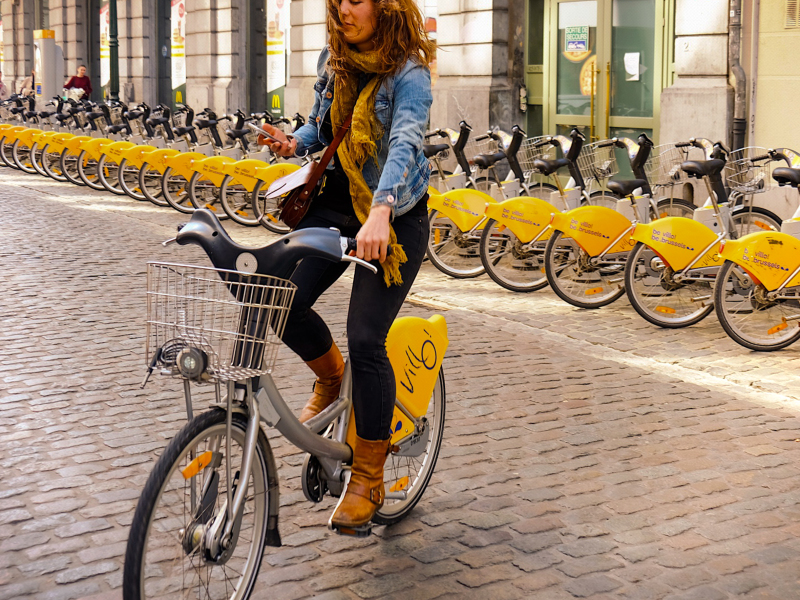Benchmark Study (Electric) Shared Bicycle Systems
15064
From 2016 to 2018
TML and Mobiped investigated ways to increase the use of the Villo bike-sharing system in Brussels, including a benchmark and user survey. TML analysed the cost-effectiveness of options such as electric bikes and long-term rentals.
TML and French company Mobiped looked into ways to increase use of the Villo bike-sharing system for the Brussels Capital Region. Although the system has a significant number of subscribers, bicycle use remains low compared to similar systems in neighbouring countries. For this study, we carried out a benchmark with a number of foreign cities and conducted a user survey and survey of non-users. Finally, we calculated the cost-effectiveness of the different options. The study was first conducted in 2016; it was updated in March 2018 with (among other things) a number of new alternatives included in the benchmark.
In a first phase, we conducted a benchmark and consulted a number of experts to list existing options that could increase the use of Villo bikes, such as equipping the Villo bikes with an electric drive. We also conducted a user survey and took a survey of non-users.
In a second phase, we analysed the cost-effectiveness of different options to encourage bicycle use in the Brussels Capital Region.
TML set up a methodology to quantify and motivate the benefits of the different options. We conducted an impact analysis of a possible expansion of the bike-sharing system to include electric bicycles. We also included alternatives to the bike-sharing system, such as the long-term rental of (electric) bicycles. For this impact analysis, we were able to draw on our expertise from comparable bicycle (infrastructure) projects.
The study resulted in a non-public report.
TML and French company Mobiped looked into ways to increase use of the Villo bike-sharing system for the Brussels Capital Region. Although the system has a significant number of subscribers, bicycle use remains low compared to similar systems in neighbouring countries. For this study, we carried out a benchmark with a number of foreign cities and conducted a user survey and survey of non-users. Finally, we calculated the cost-effectiveness of the different options. The study was first conducted in 2016; it was updated in March 2018 with (among other things) a number of new alternatives included in the benchmark.
In a first phase, we conducted a benchmark and consulted a number of experts to list existing options that could increase the use of Villo bikes, such as equipping the Villo bikes with an electric drive. We also conducted a user survey and took a survey of non-users.
In a second phase, we analysed the cost-effectiveness of different options to encourage bicycle use in the Brussels Capital Region.
TML set up a methodology to quantify and motivate the benefits of the different options. We conducted an impact analysis of a possible expansion of the bike-sharing system to include electric bicycles. We also included alternatives to the bike-sharing system, such as the long-term rental of (electric) bicycles. For this impact analysis, we were able to draw on our expertise from comparable bicycle (infrastructure) projects.
The study resulted in a non-public report.


